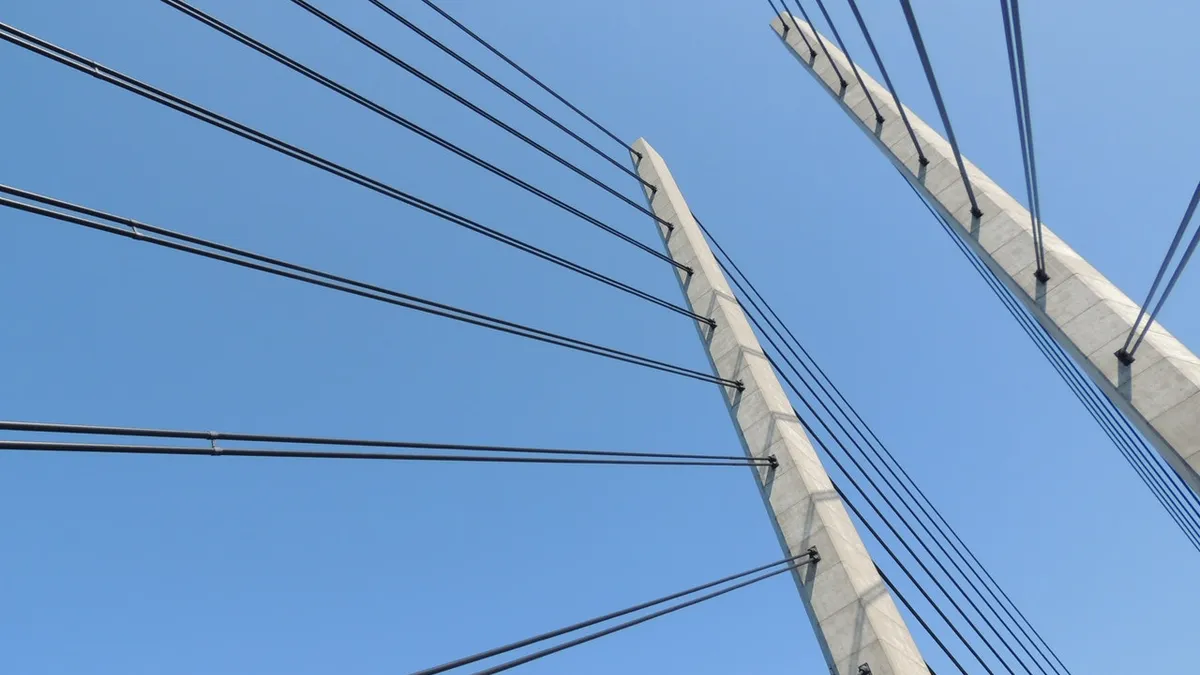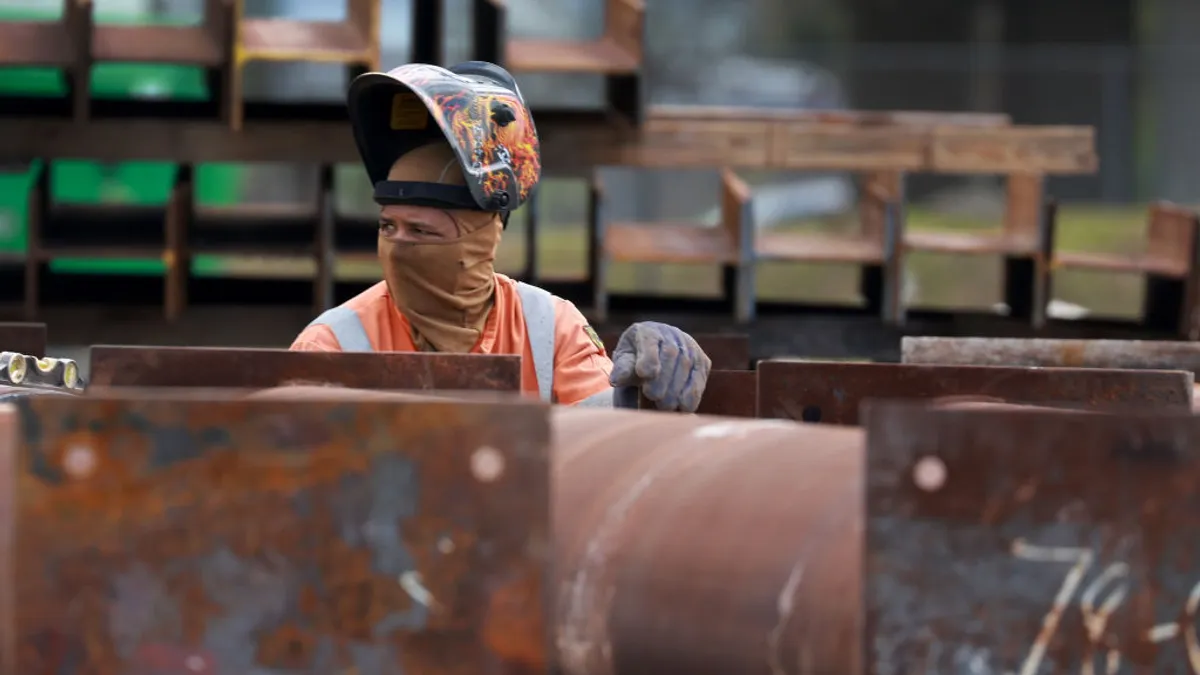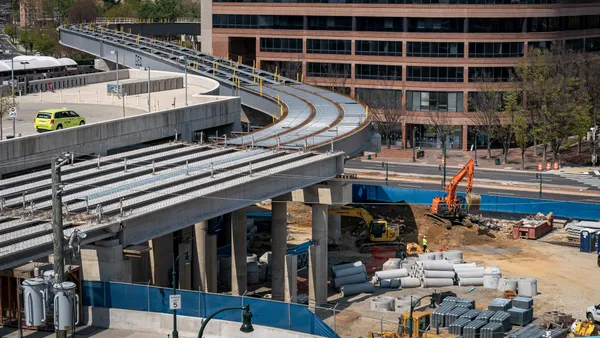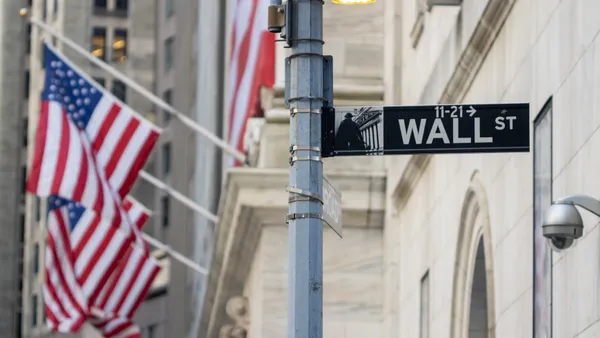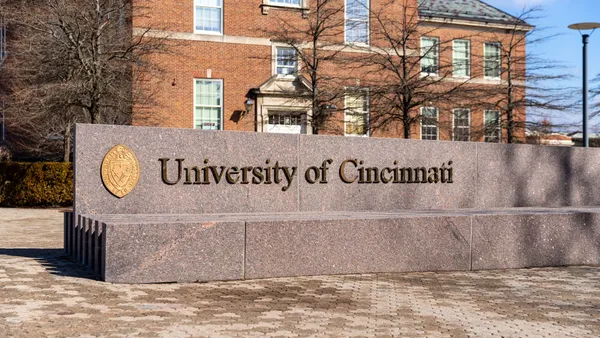Dive Brief:
- The CA$5.7 billion (U.S. $4.4 billion) U.S.-Canada Gordie Howe International Bridge linking Detroit, Michigan, and Windsor, Ontario, should be open to traffic sometime in late 2024, according to the Windsor-Detroit Bridge Authority. The authority also announced that it has executed a contract with its design, build, finance, operations and maintenance partner Bridging North America, indicating that construction can now begin.
- After design and "stakeholder consultation," Bridging North America will begin the 74-month construction phase, which will involve building two 722-foot towers on each side of the Detroit River and then constructing the bridge deck in pieces until two 1,394-foot cantilevers meet in the middle. This style of bridge construction is also called the balanced cantilever method because each of the bridge-deck cantilevers over the river by a cantilever over land on both the Canadian and U.S. sides. The project is expected to generate 2,500 construction jobs, a figure which includes both direct employees and those working for subcontractors.
- The CA $5.7 billion represents CA$3.8 billion for construction and another CA$1.9 billion for operations, maintenance and financing costs. The contract includes payments during construction, a payment upon substantial completion and compensation during the 30-year operations and maintenance agreement. As with many public-private partnerships that have operations and maintenance components, payments during this phase can be withheld if certain performance-based standards are not met.
Dive Insight:
The international crossing's estimated price tag has increased since the project was first announced, and some of this likely can be attributed to the rising cost of materials and labor, the latter of which is being pushed by the pervasive and persistent skilled workers shortage. Cost increases incurred after the contract has been signed usually means that the construction company, or in this case the Bridging North America consortium, will be responsible for any overruns as long as they aren't a result of something like an owner-initiated design change.
One potential variable is the project's current Buy American exemption, granted by the U.S. Federal Highway Administration during the project's early planning phase back in 2012. The agency made the decision largely because Canada loaned Michigan the money to finance its share and is assuming much of the financial risk.
However, the owners of the Ambassador Bridge, the sole U.S.-Canada bridge crossing in and out of Detroit, have requested the exemption be rescinded, claiming it violates President Donald Trump's America First policy. A reversal of this decision or disagreements around other trade issues like tariffs could drive material prices for the project higher than they already are.


